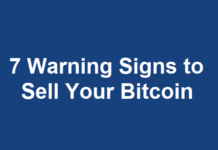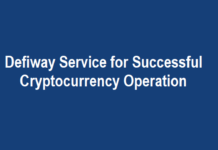
Significant changes are happening in Switzerland. The long fight for cryptocurrency to be accepted in the financial world is slowly becoming a reality. In February 2021, the country passed the so-called Blockchain Law. This law creates legal conditions for establishing a regulated cryptocurrency, decentralized finance, and digital security industry where all risks will be transparent and understood by all participants. That way, Swiss citizens will be able to better protect their assets when playing on the cryptocurrency market and trading their digital assets.
Ledger-Based Securities and DLT Trading Facility
Like any revolutionary law, the new Swiss law concerning blockchain technology needs constant improvements, and two important recommendations have come from Homburger, a trusted advisor of Swiss corporations and banks. The advisor company has introduced two new concepts, ledger-based securities, and the distributed ledger technology (DLT) trading facility.
Ledger-based securities are rights and obligations that are registered in a specific register, as per agreement between the contracting parties. After registration, these rights can only be exercised or transferred via the register.
The DLT trading facility is similar to a traditional stock exchange, but its primary purpose would be to be used for trading ledger-based securities and other digital assets, such as cryptocurrencies, which under Swiss law don’t qualify as securities.
A New Hope for the Financial Markets
The new law is expected to put an end to, or at least reduce money laundering using cryptocurrency. New rules would also enable digital asset reclamation from insolvent companies and secured digital exchange. Not to mention the generally positive impact it would have on the whole industry.
Soon after the new law was passed and accepted, three Swiss companies – SEBA, Sygnum Banks, and Crypto Finance – announced they were granted a securities house license by FINMA, the Swiss financial regulator.
Crypto Finance is a brokerage with over CHF 1 billion in trades in 2020, which can now offer clients to trade with digital securities and assets. Sygnum Banks quickly disclosed its first digital assets – a tokenized range of premium wines from Fine Wine Capital. Other companies have announced digital assets of their own, such as an electric car manufacturer’s shares or real estate.
Trading Digital Assets
The distributed ledger (blockchain) technology came to the forefront with the passing of the new law. However, one thing had to be fixed first: Platforms where you could trade tokenized securities. Legislative changes to accommodate this were already on the way. And one company, SIX Digital Exchange, was getting ready to launch as soon as the new changes were accepted.
In September 2021, SIX Digital Exchange got the green light from FINMA to operate as a Swiss central securities depository and stock exchange with a license to trade digital assets. As a digital platform that works like a blockchain, SIX Digital Exchange can now trade company shares and bonds.
SIX Digital Exchange’s parent company is SIX Group, which is owned by several Swiss banks. SIX Group already operates the country’s largest traditional stock exchange. It’s currently attempting to build new partnerships around the world and make “a global exchange network for digital assets and unlocking global liquidity.”











